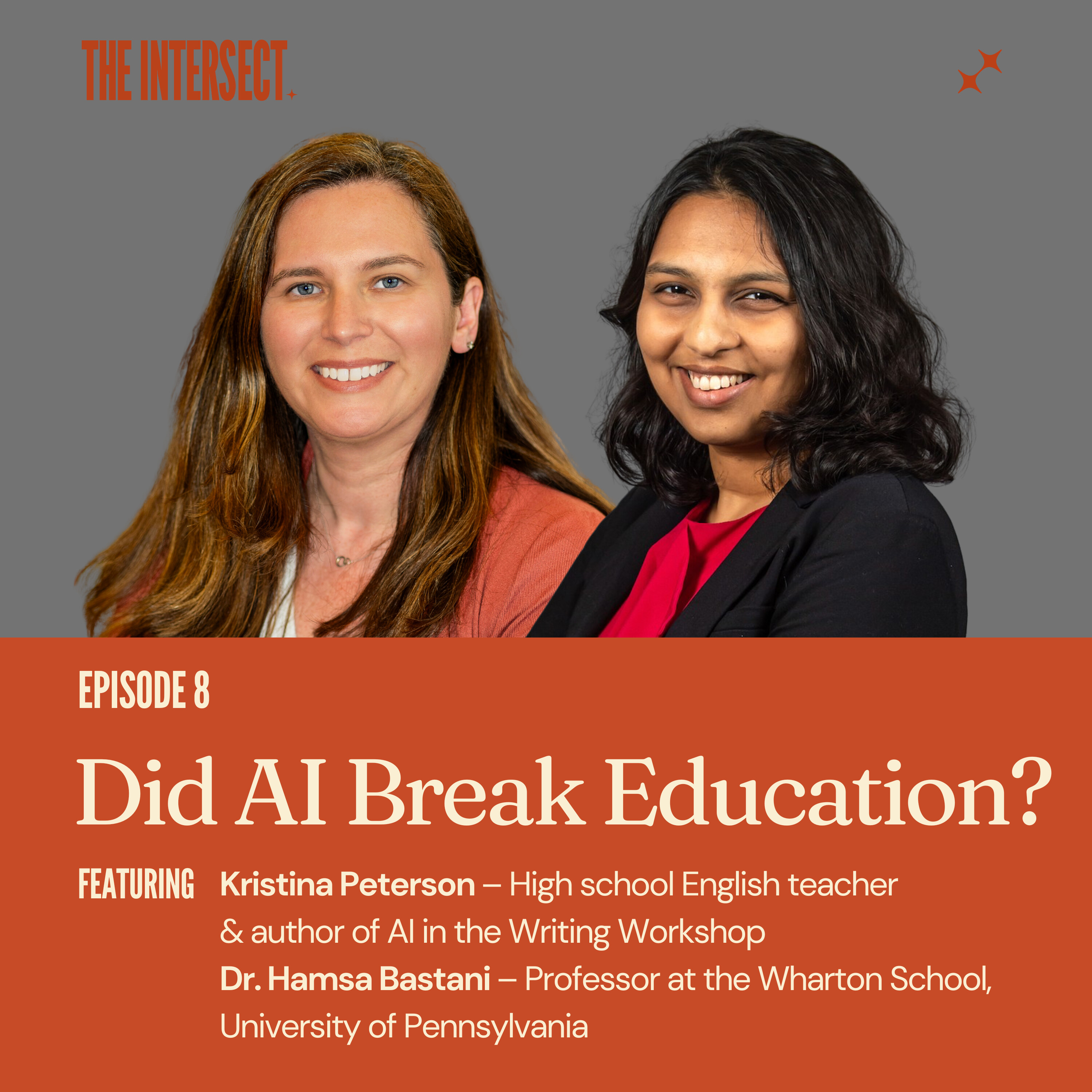Schools out, but AI is already lesson-planning for the Fall

It’s June and for the most part we’re out of the physical classroom but still very much in a live experiment. AI was fully in the halls of education this last semester, practically every day. Students are using it. Teachers are using it. Administrators are using it (and trying to regulate it at the same time). The lines are still being drawn as graduations commence and students across the country proverbially log out for the summer.
For this week’s conversation, I sat down with Dr. Hamsa Bastani, a researcher at Wharton whose recent study is one of the first to quantify how generative AI impacts both short-term academic performance and long-term learning outcomes. And Kristina Peterson, a ninth grade English teacher at Exeter High School in New Hampshire, who has been living this reality day-to-day, face-to-face with students as they learn how to write and work alongside these tools. She’s also co-authored a book on how to do this.
Both of these women are on the front lines of some of the most important changes happening in education -- and really, in how we prepare the next generation for what’s coming. As Kristina put it during our conversation: she didn’t get into this work to become a plagiarism investigator. And no teacher wants that to be their job. The students don’t want that either.
‘Did you write this draft, or did you lean on some AI to write it?’
Kristina Peterson, talking about an experience with a student in her classroom this semester.
But that’s where some of the system still is right now -- stuck in this weird in-between moment, where we’re seeing students punished for using tools that are already ubiquitous, while at the same time, schools themselves are actively beginning to integrate AI into the curriculum.
As Kristina and Hamsa both noted, by the time students return to classrooms next year, we’ll likely see more formal integrations -- backend tools, AI-infused learning platforms, entire systems built with AI baked into how curriculum is delivered and how teachers support students.
There is so much to consider, and conversations like this help us start to frame the questions that matter most. We’re still writing the rulebook as we go. Because whether you’re a parent, a teacher, a student, or a lifelong learner, this moment is forcing all of us to rethink how we learn, how we teach and how we prepare for a world where AI is fully embedded.
As always, I welcome your thoughts, your feedback and the names of people you think we should be talking to as we continue to explore our coexistence with AI.
Here is this week's episode.
Cory
NEW! Like many of you, I read (watch and listen) to many things. Starting this week I’m sharing a handful of links, mostly written, to pieces from the week that have me thinking. Let me know what you think (and what you’re reading!) … without further ado, now debuting:
Some of what I’m reading this week:
Our Knowledge System Has Collapsed. Can We Survive Without It? by Ted Gioia (The Free Press)
As institutions lose credibility and AI reshapes who controls information, a new phase of human knowledge is emerging -- one without a clear center
Diabolus Ex Machina by Amanda Guinzburg (Everything is a Wave)
A surreal, Black Mirror-like interaction with ChatGPT while attempting to select essays for a literary agent query, exposing a truly eerie AI feedback loop
Is Grok liable for sexual harassment? by Kat Tenbarge (Spitfire News)
Inside the legal and ethical crisis as Elon Musk’s AI is used to automate large-scale sexual harassment -- and the system struggles to keep up
Will The Washington Post Embrace the AI Slush Pile? by Amanda Katz (The Atlantic)
As legacy media wrestles with generative content, Katz asks: should AI become just another unpaid intern in journalism’s messy back office?
OpenAI Seems to Be Making a Very Familiar, Very Cynical Choice by Vauhini Vara (The New York Times)
The next phase of AI may not be technical, but economic, as OpenAI edges toward surveillance capitalism, following Big Tech’s original sin of monetizing human experience at industrial scale
China shuts down AI tools during nationwide college exams By Jess Weatherbed (The Verge)
China hits pause on AI access during high-stakes testing -- a live experiment in controlling AI’s reach inside the classroom



